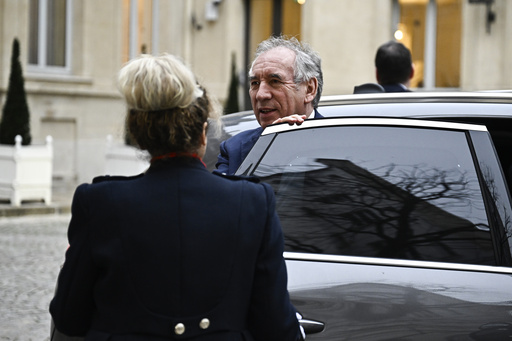PARIS — The office of French President Emmanuel Macron revealed a newly formed government on Monday, following the collapse of the previous Cabinet in a consequential vote driven by ongoing disputes related to the national budget. The arrangement was constructed by the newly appointed Prime Minister Francois Bayrou, who blended members from the prior conservative-dominated administration with new representatives from centrist and left-leaning backgrounds.
The immediate focus for this government will be the formulation of the 2025 budget. This new administration is stepping in after months of political impasse and crises compounded by mounting pressure from financial markets to address France’s substantial debt. Macron has reiterated his commitment to serving until the conclusion of his term in 2027; however, governing has proven challenging since the snap elections last summer resulted in no single party obtaining a majority in the National Assembly. Following his recent appointment 10 days ago, Bayrou has engaged in discussions with leaders from a variety of political factions to establish a balanced government structure.
Some critics expressed discontent on Monday regarding Bayrou’s engagement with Marine Le Pen’s far-right party, arguing that the new cabinet bears too much resemblance to its predecessor, which might undermine its credibility in the eyes of lawmakers. Former Prime Minister Michel Barnier stepped down earlier this month after a no-confidence vote triggered by budgetary disagreements in the National Assembly. Le Pen was instrumental in Barnier’s ousting, aligning her National Rally party with left-wing members to pass the no-confidence resolution.
To maintain stability, Bayrou will require backing from moderate legislators across the political spectrum. Eric Lombard, previously a banker, takes on the critical role of finance minister, particularly significant while France strives to honor commitments to its European Union partners regarding deficit reduction, which is projected to hit 6% of its gross domestic product for this year. Lombard has a history in financial advisory, having worked with a Socialist finance minister in the 1990s.
Bayrou has indicated his support for tax increases proposed by his predecessor, but how the newly formed government will navigate budgeting while appeasing lawmakers disgruntled over spending cuts remains uncertain. Bruno Retailleau from the hard-right faction will continue as interior minister, overseeing security and migration policy. Sebastien Lecornu, known for his role in military support for Ukraine, will remain as defense minister, along with Jean-Noel Barrot, who retains his position as foreign minister after recently extensive travels in the Middle East.
The new government also welcomes back two former prime ministers. Manuel Valls has been appointed as minister for overseas affairs, while Elisabeth Borne will take charge of the education ministry.




